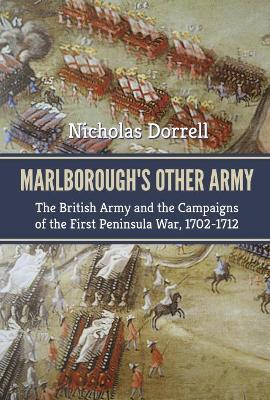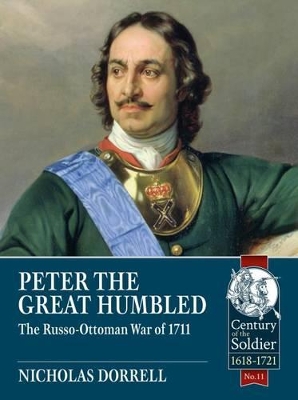Century of the Soldier
2 total works
An often neglected aspect of Marlborough's war is its crucial campaign in Spain and Portugal, also known as the First Peninsula War of 1702-1712. Whilst this campaign was critical to the outcome of the war, relatively little information is available about it or the army that fought it. This work not only provides a detailed look at the army that fought the Spanish and Portuguese campaigns of Marlborough's war, but it also offers an insight into the course of the war in Iberia. It aims to provide more detail and understanding of a relatively little known part of a war that helped to shape and strengthened Britain's position amongst the main European players.
Several chapters look at the national contingents that made up the confederate armies fighting in Spain and Portugal. The work concentrates not only on the reasonably well known British contribution but also on the equally important role of the less well known Austrian, Dutch, Palatine, Portuguese and Spanish contingents. These chapters provide general information about the units involved, their organisation, tactics and other relevant detail. In other chapters the work concentrates in detail on the developments in the Spanish and Portuguese campaigns in each year of the war. Details of the composition of the armies in each campaign, their activities and battles, the size of the units, if known, in each year are provided. Attention is paid not only to the most famous engagement at Almanza but also to the other battles and skirmishes of the Iberian campaigns.
The book provides a complete guide to the forces fighting in Marlborough's armies in Iberia. It will be a valuable addition to the library of both the casual reader and the serious history student with interest in this important part of British and European history. It not only offers for the first time an overview of all the contributions to the war effort in Iberia, but also presents the reader with a valuable contrast not only to Marlborough's campaigns of the time, but also perhaps to Wellington's later campaign.
Several chapters look at the national contingents that made up the confederate armies fighting in Spain and Portugal. The work concentrates not only on the reasonably well known British contribution but also on the equally important role of the less well known Austrian, Dutch, Palatine, Portuguese and Spanish contingents. These chapters provide general information about the units involved, their organisation, tactics and other relevant detail. In other chapters the work concentrates in detail on the developments in the Spanish and Portuguese campaigns in each year of the war. Details of the composition of the armies in each campaign, their activities and battles, the size of the units, if known, in each year are provided. Attention is paid not only to the most famous engagement at Almanza but also to the other battles and skirmishes of the Iberian campaigns.
The book provides a complete guide to the forces fighting in Marlborough's armies in Iberia. It will be a valuable addition to the library of both the casual reader and the serious history student with interest in this important part of British and European history. It not only offers for the first time an overview of all the contributions to the war effort in Iberia, but also presents the reader with a valuable contrast not only to Marlborough's campaigns of the time, but also perhaps to Wellington's later campaign.
In 1711 Peter the Great, the Tsar of Russia, led a large army of veterans from Poltava and his other Great Northern War victories into the Balkans. He aimed to humble the Ottomans in the same way he had the Swedes a few years before. Victory would secure useful allies in the Balkans, cement Russia's `Great Power' status and offer Peter the opportunity to finally gain control over the Swedish king, Charles XII, thus completing his victory over Sweden. Yet within a few months, the `backward' Ottomans had forced the Tsar and his Tsarina and their army of veterans into a humbling surrender near the Pruth River. The war was the first time that Russia was strong enough to confront the Ottomans independently rather than as a member of an alliance. It marked an important stage in Russia's development. However, it also showed the significant military strength of the Ottoman Empire and the limitations of Peter the Great's achievements. The war was of significance to the allies of both the Russians and the Ottomans. It was of course of an even greater importance to all those directly affected by the war such as the Swedish, the Polish, and the Cossacks, who had taken refuge from the reverses of the Great Northern War in the Ottoman territory. It would also bring about the defeat of the Moldavian and Walachian ambitions to shake off the Ottoman overlordship, elevating Dimitrie Cantemir into the position of a national hero celebrated to this day by the people of Romania.
The book looks at the causes of this little known war and its course. Using contemporary and modern sources it examines in detail the forces involved in the conflict, seeking to determine their size, actual composition, and tactics, offering the first realistic determination on the subject in English.
The book looks at the causes of this little known war and its course. Using contemporary and modern sources it examines in detail the forces involved in the conflict, seeking to determine their size, actual composition, and tactics, offering the first realistic determination on the subject in English.

